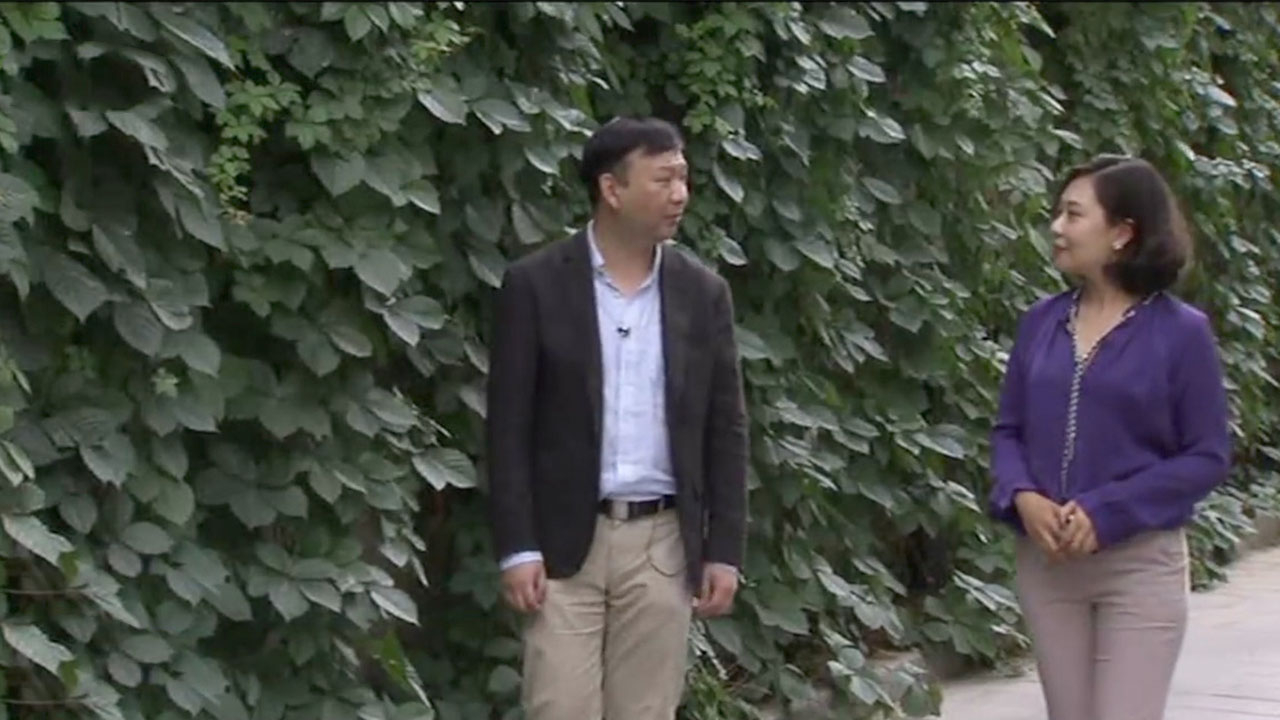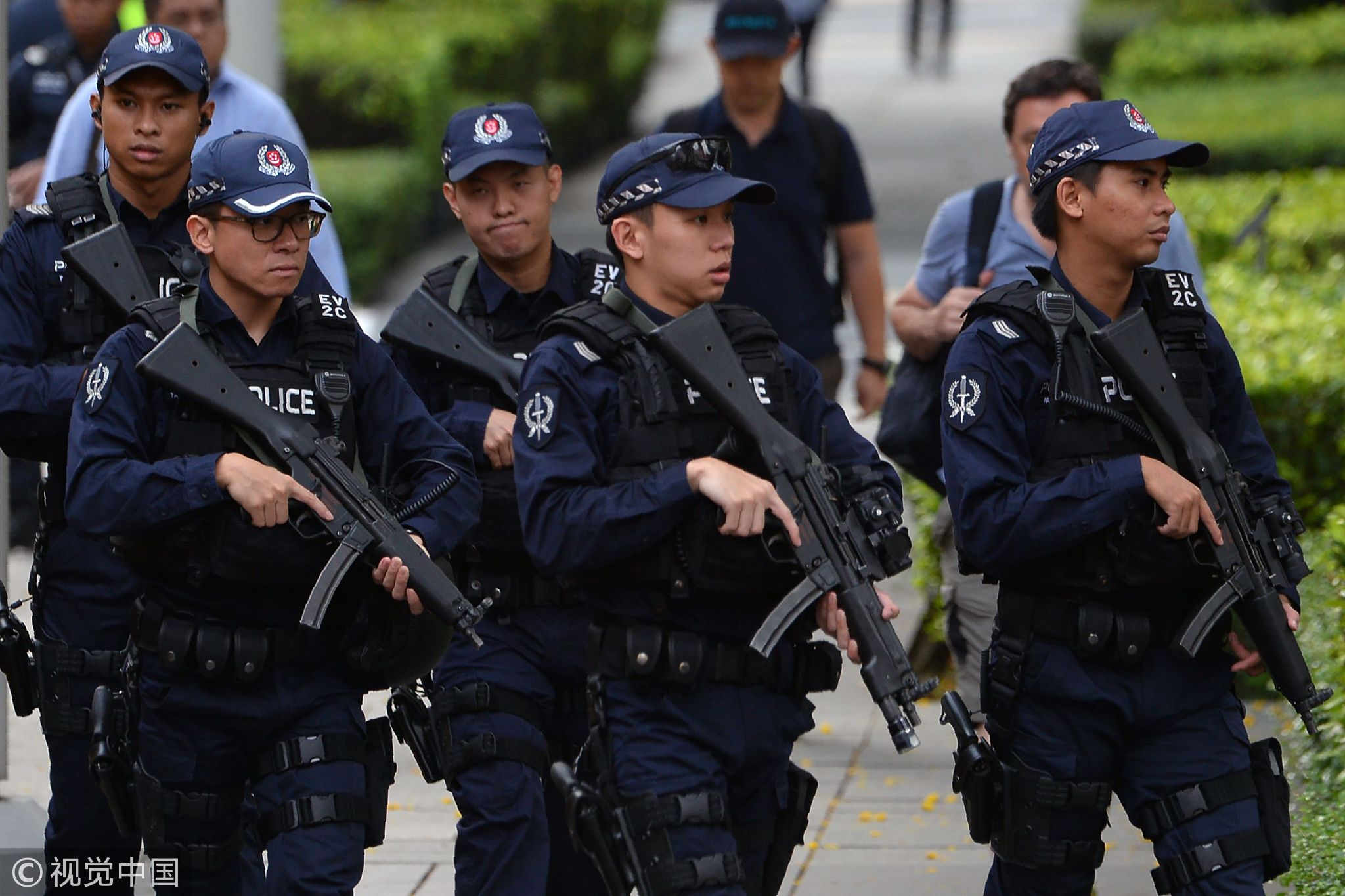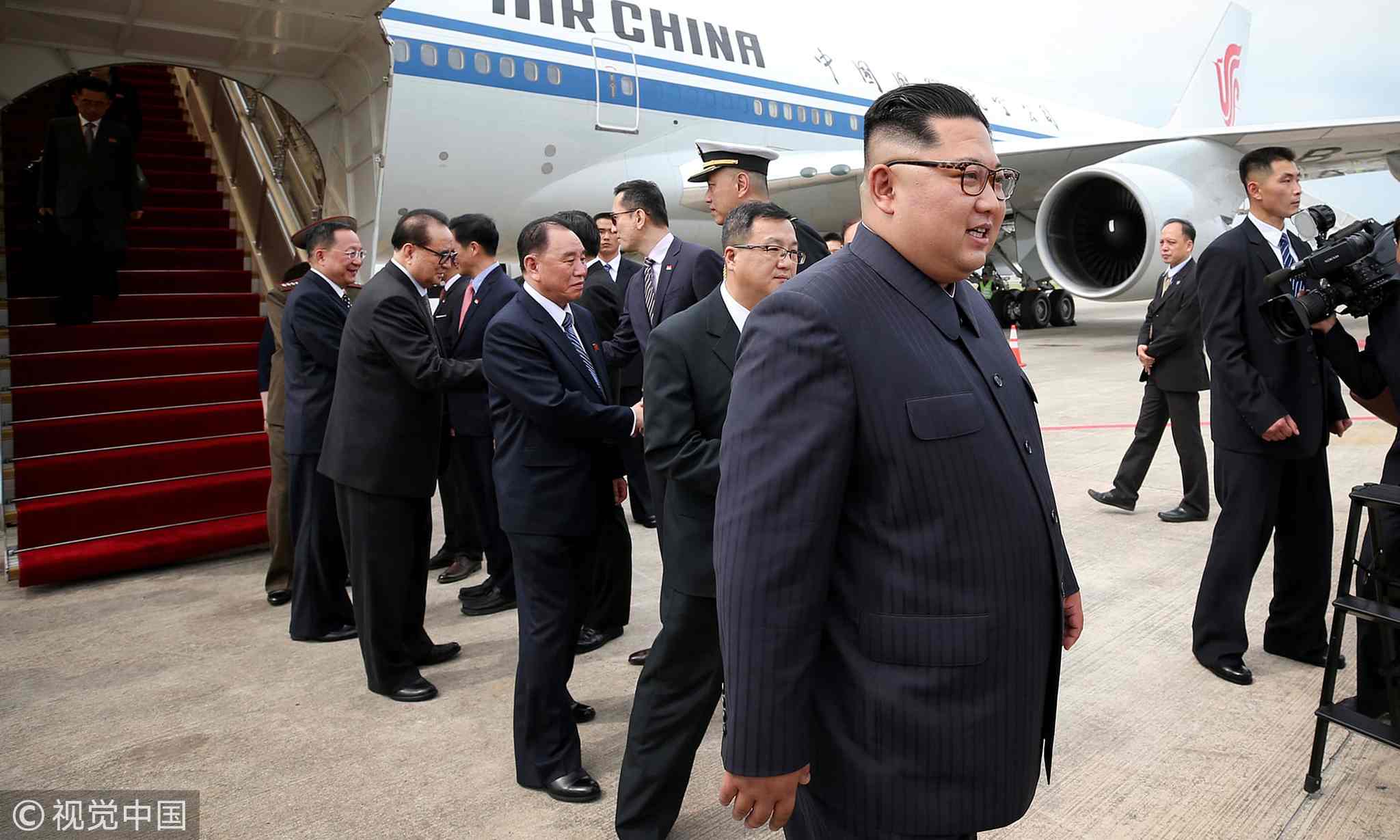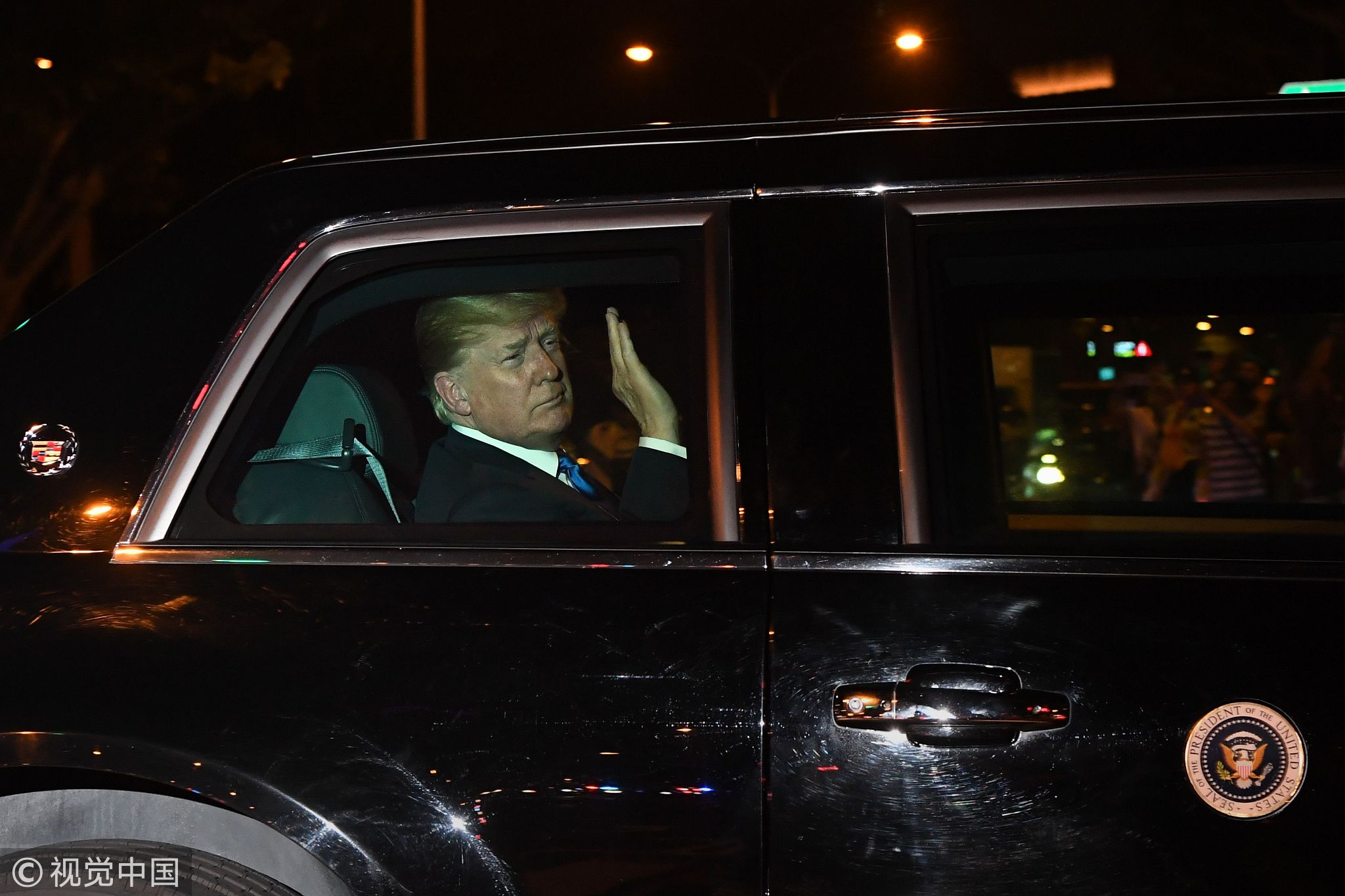
Politics
14:52, 11-Jun-2018
Northeast Asia awaits Trump-Kim summit
By CGTN's Hou Na
02:10

Neighbors of the Democratic People's Republic of Korea (DPRK) – Japan, the Republic of Korea and China – are closely watching the planned summit between US President Donald Trump and the DPRK's leader Kim Jong Un.
The two leaders both arrived in the tropical city-state of Singapore on Sunday for their first face-to-face meeting on June 12. Officials from both sides also met on Monday morning for the final preparations of the summit.

Armed police officers patrol outside the St. Regis hotel, where the DPRK's leader Kim Jong Un is staying, ahead of the Trump-Kim summit in Singapore on June 11, 2018. /VCG Photo
Armed police officers patrol outside the St. Regis hotel, where the DPRK's leader Kim Jong Un is staying, ahead of the Trump-Kim summit in Singapore on June 11, 2018. /VCG Photo
Before flying in on board Air Force One, Trump said the meeting is a "one-time shot" at peace and he hopes the summit will kick-start a process that eventually leads to the denuclearization of the Korean Peninsula.
He even said he might invite Kim to the White House if everything goes well in the meeting.
After arriving on board an Air China jetliner on Sunday afternoon, Kim left his hotel and met Singapore Prime Minister Lee Hsien Loong at the presidential palace, the Istana.

DPRK's leader Kim Jong Un arrives via an Air China Boeing 747 at Singapore's Changi Airport on June 10, 2018. /VCG Photo
DPRK's leader Kim Jong Un arrives via an Air China Boeing 747 at Singapore's Changi Airport on June 10, 2018. /VCG Photo
With high-spirited smiling faces on both sides, Kim told Lee Singapore's role as host would be recorded in history if the summit was a success.
While hopes are running high just hours ahead of the summit, the outcome of the meeting remains uncertain.
Li Nan, associate research fellow at the Institute of American Studies of the Chinese Academy of Social Sciences, told CGTN that the US and the DPRK might not be able to reach agreements on the specific steps of the denuclearization, which could drag the Korean Peninsula into hot water again.
Washington and Pyongyang have very different definitions on what denuclearization actually means.
Pyongyang has rejected any unilateral nuclear disarmament, and its state media KCNA’s reference to denuclearization of the peninsula has historically meant that Pyongyang wants the US to remove its “nuclear umbrella” protecting the ROK and Japan.

US President Donald Trump waves upon his arrival to his hotel in Singapore on June 10, 2018. /VCG Photo
US President Donald Trump waves upon his arrival to his hotel in Singapore on June 10, 2018. /VCG Photo
The US side has reiterated that Washington seeks "the complete, verifiable, irreversible" denuclearization of the Korean Peninsula.
Li also pointed out that Japan, a regional player that relies on Trump for issues ranging from security to the release of citizens abducted by the DPRK, increases more uncertainty for the summit.
While the Japanese government will support any American policy towards the DPRK, Tokyo, an important stakeholder in northeast Asia, still has its own interests in the region, Li argues.
"It is easy to smile and shake hands with each other, but what really matters is the negotiations after the summit," Li said.
Trump also aims to take the summit as a show that he can use to win mid-term elections, Li added.
Nonetheless, Li says the summit itself is a milestone in the political careers of both Donald Trump and Kim Jong Un, which will certainly have a far-reaching impact on all the stakeholders in northeast Asia.

SITEMAP
Copyright © 2018 CGTN. Beijing ICP prepared NO.16065310-3
Copyright © 2018 CGTN. Beijing ICP prepared NO.16065310-3